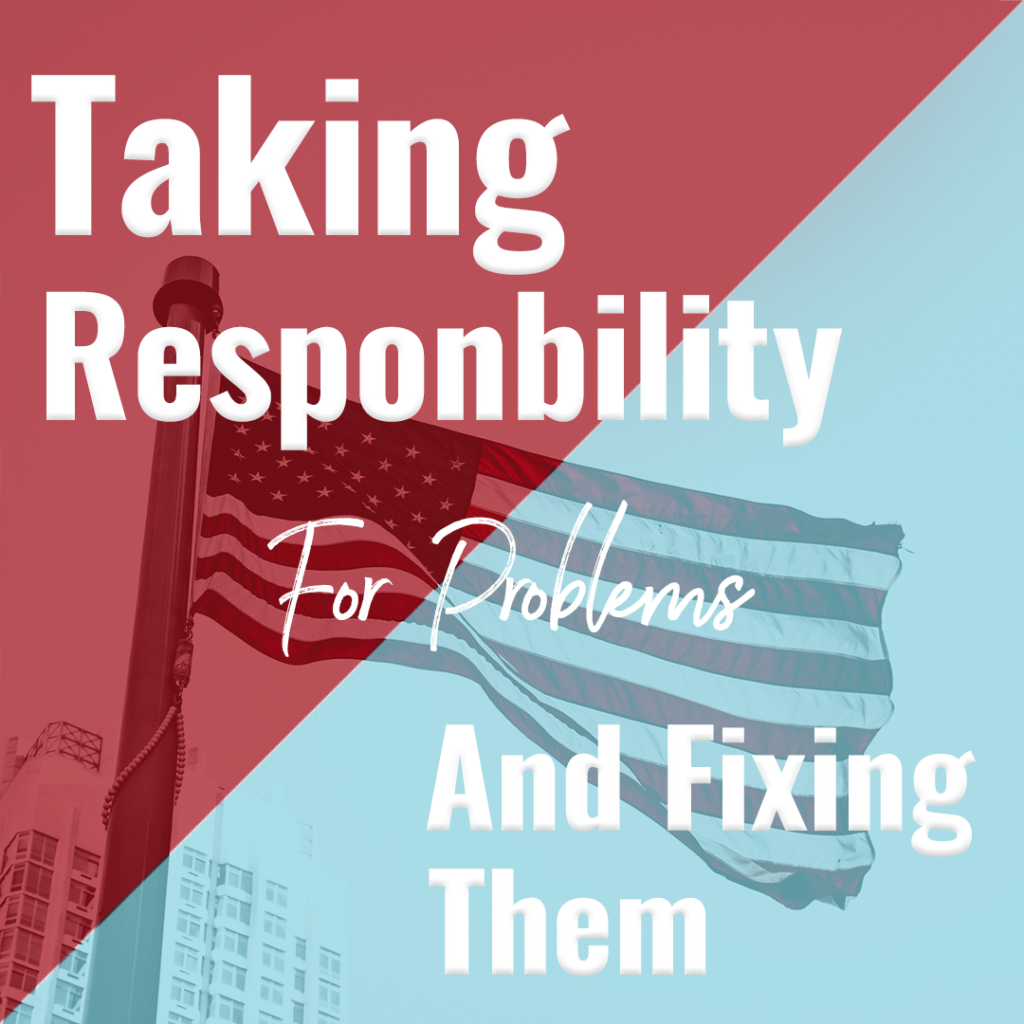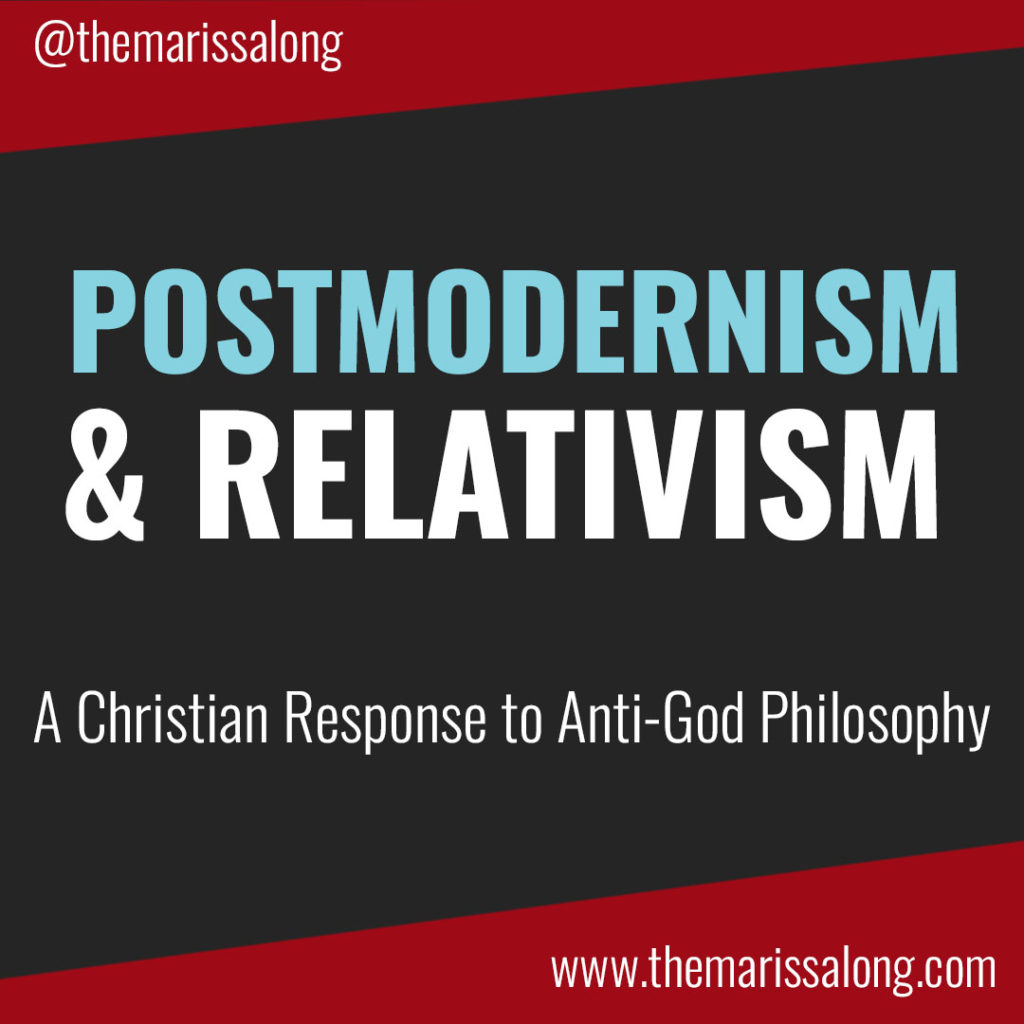Responding to Postmodernism and Relativism: An Analysis of Postmodernism and How It Has Affected the Church and Christianity
Postmodernism is the foundation of relativism, Critical Theory, and emotional thinking (as opposed to critical thinking) that plagues modern society. Let’s dive into the history of postmodernism, examine its three phases, and see how Christians should respond to the murky arguments based on this centuries-old philosophy.
The Three Phases of Postmodernism
There are three phases to consider when studying postmodernism. These include pre-modernism, modernism, and postmodernism. Let’s check out how it all started with these three phases.
1. Pre-Modernism
Pre-modernism is the first phase. In pre-modernist thought, religion was the source of life. People’s belief in God and their religion was central to everything they did. There was also a strong belief that the body was evil and the spirit was good.
Pre-modernism is focused on creating a world of “totality, unity, and above all, purpose” (Wabash Center). This focus resulted in rituals, celebrations of seasons, cycles, and reproduction of both animals and humans (Wabash Center). Ultimately, pre-modernism occurred before the 1600s as people based their morality, ideologies, and decisions on the existence of God.
Examples of pre-modernism include Native American religions where nature and seasons were central to their religious life and ancient civilizations such as the Egyptians. Religion and God (or gods) were central to pre-modernist life.
2. Modernism
Modernism was the second wave of postmodernism. The philosopher René Descartes who lived from 1596 to 1650, founded much of modernist thought. If you have heard the saying, “I think, therefore I am,” you know what Descartes is famous for! Descartes founded the idea that science, not God, is the source of truth. This was a massive cultural shift in philosophy and spawned the rationalism we see in the European Enlightenment from 1650-1800.
As modernism removed the necessity of God and religion in people’s lives, other anti-God worldviews such as Marxism, communism, Nazism, and utopian ideals grew in popularity. Atheism began to grow in popularity as people attributed their purpose and meaning to science, not a Creator.
The idea that “science is god” gave birth to the inhuman events of World War I and II. You can see examples of modernism in the French Revolution as the people threw off the “shackles” of religion and embraced incredibly secular lifestyles, leading to the downfall and dictatorship of their country.
Modernism is also seen clearly in Nazi Germany and Marxist philosophy.
3. Postmodernism
Postmodernism, the third phase, arose in the 1960s as a reaction to the horrors of the two World Wars. The world recoiled at the realization that the human spirit could be so evil. The Nazis performed many of their most gruesome acts in the name of science.
Communism was also anti-God and was based on the Marxist belief that humans are inherently good. People began to question: if science and humanity was the source of good, how had things gone so incredibly wrong?
Now, instead of basing morality and beliefs on God (pre-modernism) or on science (modernism), postmodernism shifted as people began to base truth on individual experiences and local narratives.
Postmodernism disposed of the metanarratives that modernism embraced and accepted individual social class, gender, identity, race, or any other identity to define what truth is. According to the postmodernist, “Your truth might be true for you, but I have a different truth. We have different truths because we each have different perspectives based on our gender, skin color, or social class.”
While modernism substituted science for God, postmodernism substitutes the individual for science AND God. Postmodernism is truly the worship of humanity.
Relativism Enters the Picture
Relativism really couldn’t exist without postmodernist thought. Relativism is the idea that there is no objective truth. What’s true for you might not be true for me.
This, of course, is absurd. How can you make an objective claim that there is no truth when there is “no truth” to begin with? How is your claim true? James Lindsay and Helen Pluckrose write in their excellent book Cynical Theories, “Knowledge, truth, meaning, and morality are therefore, according to postmodernist thinking, culturally constructed and relative products of individual cultures.”
Postmodernism Explained
Postmodernism threatens classical liberalism and the democratic ideals that the American republic is based on.
Helen Pluckrose writes that postmodernism finds the majority of its foundation in the teachings of Nietzsche (the man who said, “God is dead”) and Heidegger “for its anti-realism and rejection of the concept of the unified and coherent individual” (Areo Magazine).
Under postmodernism, in other words, nothing is known for sure, and there are no overarching truths. Pluckrose continues to say that postmodernism “reacted against the liberal humanism of the modernist artistic and intellectual movements, which its proponents [of postmodernism] saw as naively universalizing a western, middle-class and male experience” (Areo Magazine).
Postmodernism is the source from which we get cancel culture, toxic masculinity, third-wave feminism, queer theory, fat studies, and many other unhelpful philosophies in cultural development.
Thinking Emotionally
Postmodernism also has another consequence: it causes people to think emotionally, not logically.
In his podcast Culture Shift, Barry Farah discusses emotional thinking and dives into some points from Alan Bloom’s book The Closing of the American Mind.
Farah makes the case that relativism squelches curiosity to understand deep topics. It creates a superficial person who only thinks emotionally and does not see any intrinsic meaning in life because God does not exist (in their thinking).
Farah states, “They gravitate to the lowest common denominator of morality and thought.”
Young Americans who have been raised on postmodernist relativism don’t search out the deep things of life. They go for the shallow things of instant gratification rather than delayed gratification (Barry Farah).
In a sense, they microwave Ramen noodles in their philosophies, rather than carefully seasoning and marinating a brisket and broiling it at a low temperature for hours until it is cooked to perfection. Emotional thinking is like ramen noodles. Critical thinking and deeply understanding a topic is like the brisket.
Can you tell I like food?! 🙂
Anyhow, young people taught under postmodernism can’t learn from the past because there is no objective truth to guide them. Instead, they take the path of least resistance (Barry Farah) which often leads them to a degrading life of pornography, drugs, endless video games, free sex, and lack of purpose.

Want to read more? Read “Taking Responsibility For Problems And Working To Fix Them”
People Abandon Their Creator
When people abandon their Creator (i.e. postmodernism), they abandon their purpose and the meaning of life.
God created us to “dive deep” and think about His creation. David writes in Psalm 139: 17-18a, “How precious also are Your thoughts to me, O God! How great is the sum of them! If I should count them, they would be more in number than the sand;…” (NKJV).
God wants us to think critically and explore ideas. He tells us in Isaiah 55:8-9, “‘For My thoughts are not your thoughts, nor are your ways My ways,’ says the LORD. ‘For as the heavens are higher than the earth, so are My ways higher than your ways, and My thoughts than your thoughts’” (NKJV).
The Christian Response to Postmodernism
The 1960s and 1970s saw a cultural shift in people’s minds as the youth rebelled against authority. This created a culture that rejected the idea of an all-sovereign God Who ruled people’s lives. This rejection of religious and moral parameters caused divorce, broken families, and the breakdown of Western culture (Summit Ministries).
This caused a domino effect as Christians were affected with a “define-your-god” belief. Suddenly, Christians could make God into whoever they thought He should be. Jesus was became all grace, all love, and no judgment, although He came to judge sin.
“And Jesus said, ‘For judgment I have come into this world, that those who do not see may see, and that those who see may be made blind'” (John 9:39, NKJV).
As postmodernism infected the church, people no longer went to the Bible to find out Who God is. Because they could define their own truth and terms (i.e. relativism), they made God into Who they thought He should be.
That obviously doesn’t work. Graham Johnston wrote, “Unfortunately, with the loss of truth, people will now seek faith without boundaries, categories, or definition. The old parameters of belief do not exist. As a result, people will be increasingly open to knowing God, but on their own terms” (Summit Ministries).
This makes it incredibly difficult to have objective conversations, even with fellow Christians.
Biblical Roots
The only way to know what is true (and the only way to be able to tell a fellow Christian the truth) is to have your belief rooted in the Bible.
In John 14:6, Jesus says, “I am the way, the truth, and the life. No one comes to the Father except through Me” (NKJV).
When people claim there are many ways to God, or people decide they do not believe a certain part of the Bible, the only choice we have is to come back with the Bible as our foundation. When secular postmodernists claim that truth is only known through individual experiences and that gender, race, sexuality, and identity matter, we must stand firm in our faith and boldly tell them the truth.
The biblical argument won’t always sound “tolerant” or “progressive”, but it doesn’t have to. Just because a postmodernist argument might sound better when you first hear it, that does not mean it is correct.
Conclusion
It’s important to understand postmodernism and how relativism has changed the culture. Even though pre-modernism, modernism, and postmodernism might seem like dry (and ancient) philosophies, they actually affect how you think and act every day, and they also affect how you interact with others.
How prepared are you to have those tough conversations? I’ve been there and struggled. There have been countless times where I didn’t have an answer, and it’s only by researching and thinking logically about these issues that we can effectively combat them.
Take courage. Stand strong, and pray for wisdom as you wage an ideological war on the world’s anti-God philosophies.


6 comments